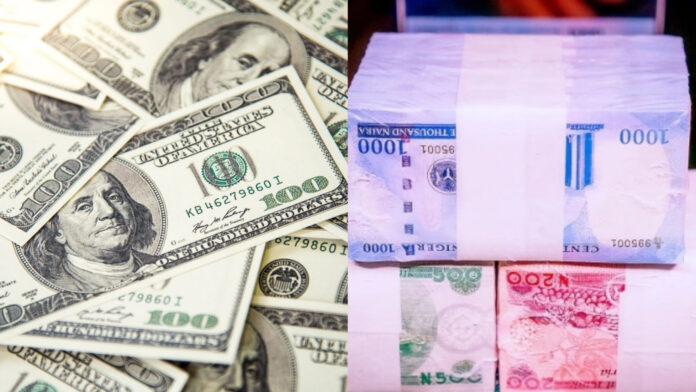The Nigerian naira appreciated slightly against the U.S. dollar, closing at ₦1,530.52/$ on Wednesday, a 0.16% gain from the previous rate of ₦1,532.93/$, according to data from the Central Bank of Nigeria (CBN).
Market trends showed that the naira traded as high as ₦1,545/$ and as low as ₦1,500/$, marking a lower volatility range compared to the previous day. In the parallel market, the exchange rate remained unchanged at ₦1,585/$, reducing the gap between the official and black-market rates to 3.07% from 3.40% at the beginning of the week.
Despite ongoing fluctuations, financial analysts believe the market is stabilizing due to increased forex inflows and structural reforms implemented by the CBN. Tilewa Adebajo, CEO of CFG Advisory, noted that the introduction of a unified forex trading system is a key factor in the naira’s relative steadiness.
“There is a new system where everyone buys and sells foreign currency through a single portal, reducing inefficiencies. Many people abroad now use digital platforms for remittances, ensuring transactions happen at official rates. This has increased forex supply, but parallel market operators have yet to fully adapt,” Adebajo explained.
Investment firm Comercio Partners also acknowledged the naira’s improved stability, stating that it has remained within the ₦1,450-₦1,550 range, helping to control import costs. However, they warned that sustaining this trend depends on continued forex inflows and consistent policy implementation.
Despite the positive forex trends, analysts caution that Nigeria’s exchange rate stability faces risks from declining global crude oil prices. Brent crude has fallen by 5.5% year-to-date due to expectations of increased global supply and shifts in energy policies.
Additionally, OPEC+ has confirmed plans to begin reversing voluntary production cuts from April 2025, a move that could further increase global oil supply and pressure prices. Analysts warn that if oil prices continue to fall, Nigeria’s forex reserves could be strained, potentially affecting exchange rate stability.
While the naira has shown resilience in recent weeks, experts stress that its long-term stability depends on maintaining strong forex inflows, diversifying revenue sources, and ensuring policy consistency.










